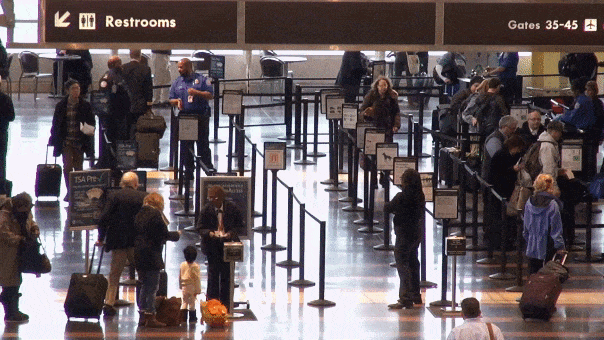
With airlines earning record profits this year, while their fuel costs are plummeting, you’d think you might actually get a break on your next flight. Think again. (iStock)
First time in more than five years, you can actually smile when you fill up, as gas prices fall below $2.80 per gallon.
You aren’t smiling, though, when you go online or call a travel agent to book an airline ticket these days. Prices seem to know only one direction: up. It’s not just the price of the ticket, as consumers get hit with a myriad of fees that know no limit.
If you want to board early you’ll have to pay up. Want a seat that won’t crush your knees and you’ll have to pay up again. How about food? There’s a fee there too.
With airlines earning record profits this year, while their fuel costs are plummeting, you’d think you might actually get a break on your next flight. Think again.
In fact, Sen. Charles Schumer (D-N.Y.) is calling for a federal investigation of U.S. airfares, saying the departments of Transportation and Justice should take a look at why airlines aren’t passing some of this savings on to the traveler.
One simple answer is because they don’t have to.
It’s Different This Time
Airlines have consolidated over the years, creating less competition for travelers. Four major carriers control 85 percent of all domestic airline travel, leaving little in the way of competition for fliers. It makes for a cozy relationship between airlines and their shareholders, many who have seen their holdings soar in value, while travelers find themselves getting squeezed. How do you feel about that?
There’s a little bit of hope on the horizon as airfares are forecast to drop in 2015, but don’t get too excited. We are looking at an average drop in fares of 5 percent after some markets have seen their fares go up by 70 percent or more over the past two years.
Supply and Demand Drive Fares
Airlines have done an excellent job of keeping a lid on expanding their fleets as their profits have grown. The quest for market share over profits had been the Achilles heel of the airline industry during past growth periods, leading to oversupply, fare wars, and eventually bankruptcy. The result of this boom and bust cycle has brought us to the time when fewer carriers compete and planes are taking off full.
Even if carriers had an inclination to pass on some savings from their fuel costs to the traveling public you wouldn’t see that happen for months. That’s because airlines do something called “hedging” their fuel costs. When oil was at $90 a barrel, many airlines locked in that price for six months or longer in the anticipation that costs could go higher. Even though prices dropped dramatically, those who locked in are still paying for fuel as if oil is above $90 a barrel, creating no savings for travelers. Even if airlines were inclined to help you with your next ticket, they wouldn’t be able to because of this situation. They simply bet wrong.
The Silver lining: Cheap Gas Means More Savings
The average consumer is saving at the pump and is enjoying an annualized windfall of $1,200 due to the dramatic drop in gas prices. Since airlines aren’t about to lower fares much in the near future, maybe you can take that money and spend it on that next flight. But make sure you keep some money laying around for those bag fees, change fees, seat upgrades or any snacks you might want to buy on board.
More From TravelPulse
Could Airfares Go Down in 2015?
What Will 2015 Hold For Fliers?
Congress Agrees to Place Cap on Airline Ticket Security Fees
Seat Kickers Are Officially the Worst Kind of Airplane Passenger
Five Reasons Everyone Should Fly Business Class at Least Once








































